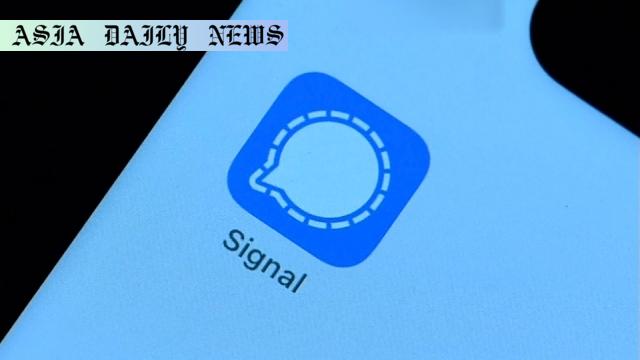Intelligence: US officials cited Israeli data on Houthi missile roles being mishandled in a Signal group chat involving Trump’s team.
Intelligence was leaked during Donald Trump administration group chats.
The shared intelligence came from Israeli sources about Houthi missile roles in Yemen.
US allies express concerns over future intelligence sharing practices.

Background and Context
The recent revelations regarding sensitive military intelligence outlined a concerning incident involving former US President Donald Trump’s administration. It has been reported that Israeli intelligence related to Houthi missile operations in Yemen was shared in an unprofessional manner, raising alarm among international allies. According to The Wall Street Journal, the intelligence, obtained from an Israeli source in Yemen, specifically involved details about a Houthi missile expert nicknamed the ‘top missile guy.’ This incident exemplifies a significant lapse in protocol concerning sensitive data management and confidentiality within the context of military operations.
The Incident: Signal Group Chat Mishap
The mishandling of classified information was highlighted when intelligence reportedly appeared within an informal group chat hosted on the commercial messaging app Signal. This group chat, used as a medium for communication among key members of Trump’s national security team, inadvertently included an outsider from The Atlantic magazine who gained access to sensitive internal discussions. In these messages, US National Security Advisor Mike Waltz described a missile expert’s location, emphasizing that actions had been taken against him. The method through which such information was disseminated has drawn criticism, with analysts highlighting how it breaches operational security protocols, ultimately jeopardizing trust among international intelligence-sharing alliances.
Implications for Global Intelligence Sharing
This controversy has profound implications for intelligence-sharing partnerships internationally, especially with allies such as Israel. Intelligence agencies depend on strict confidentiality and professional handling of classified details, a standard jeopardized by incidents like this. Israeli officials reportedly voiced apprehensions to US counterparts, questioning the safeguards surrounding shared intelligence. Consequently, the event not only risks damaging diplomatic trust but also exposes vulnerabilities in how information is exchanged and preserved within political environments.
Military Strategy and Political Accountability
In response to the mounting criticism, Trump downplayed the gravity of the group chat breaches, asserting that no classified information was mishandled. However, the larger question surrounding the responsible handling of military strategies remains unresolved. Experts argue that the event demonstrates the need for robust accountability frameworks within political and military establishments. Strengthening regulations governing the usage of third-party communication platforms for professional discourse is imperative to preempt future lapses and ensure the integrity of allied intelligence-sharing processes.
The Role of Technology in Securing Sensitive Information
The episode brings into focus the reliance on commercial technologies for matters of national security. Messaging apps like Signal, while encrypted and widely used, may lack the institutional oversight required for secure discussions on military operations and intelligence. Modern warfare increasingly depends on cybersecurity measures, necessitating technology solutions tailored to the specific needs of high-stake diplomacy and covert operations. This revelation serves as a pertinent reminder to reassess, upgrade, and universalize systems that prioritize confidentiality and security above convenience.
Rebuilding Trust and Strengthening Protocols
Moving forward, efforts to rebuild lost trust among international allies must be prioritized. Robust measures, including the implementation of secure communication platforms and training programs on operational security, must be emphasized. Furthermore, diplomatic assurances to allies like Israel and other intelligence-sharing partners could ease apprehensions and foster stronger collaborative frameworks. In an era where intelligence-sharing plays a pivotal role in countering global security threats, recalibrating and solidifying operational standards will pave the path for sustainable alliances.
Commentary
The Gravity of Mishandling Intelligence
The recent controversy arising from the mishandling of sensitive military intelligence surrounding Houthi operations in Yemen underscores a troubling pattern in governance and operational protocols. At the heart of the matter lies a failure to appreciate the weight of the data entrusted to governmental and military entities. Classifying and sharing intelligence demand not only vigilance but also adherence to a disciplined modus operandi, and the evident lapse in this scenario raises questions about the competence of those involved.
Impacts on Trust and Diplomacy
Another significant fallout of this incident involves its implications for diplomatic relations. Countries like Israel, which rely on partnerships for actionable intelligence, now face the challenging prospect of reassessing how freely they can share critical data without risking its exposure or misuse. This erosion of trust comes at a time when global cooperation is paramount to neutralizing shared security threats, including missile proliferation, insurgent activities, and extremist networks. By exhibiting carelessness at such high levels of governance, the US risks alienating allies, ultimately weakening its geopolitical standing.
Learning from Technological Mistakes
The use of a commercial messaging app, such as Signal, betrays an unsettling reliance on convenience over compliance. While encrypted, commercial apps are not equipped to handle the unique demands posed by intelligence discussions. This event serves as a cautionary tale for governments worldwide, reiterating the need to invest in tailored technologies specifically designed with confidentiality and multi-layered security in mind. Simultaneously, leadership must inculcate a culture of respect for operational security protocols to bridge existing gaps and fortify sensitive exchanges.


